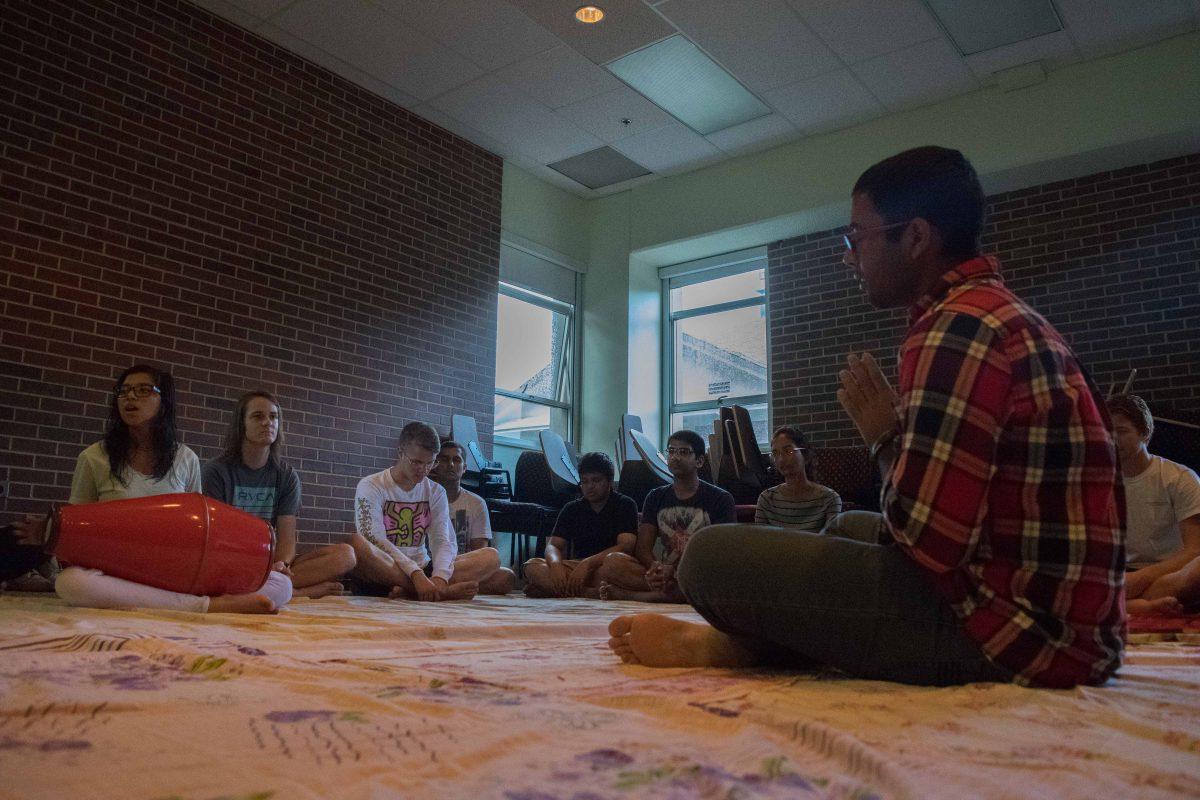As a student, it can be difficult to find time to de-stress and energize. The Students for Enlightenment and Visionary Activism Bhakti Yoga Club seeks to make it a little easier, and no limber body is required.
Many think of yoga as only a process of exercise through physical movements. According to Vikas Chauhan, a graduate studying chemical engineering and founder of the club, the original intention of yoga was to connect one’s consciousness by controlling the body, senses, mind and intelligence. The process of Bhakti delivers satisfaction and a clear mind, which is often challenging to achieve in today’s fast-paced society. Bhakti sets itself apart with its spiritual qualities.
“For busy students, Bhakti is inarguably the best yoga,” said Chauhan, the club president. “Physical health alone is not enough to make people happy. Alone, physical yoga does lead to consciousness, but the process takes so much longer.”
The Bhagavad-Gita, ancient literature of Indian spirituality, presents and compares the different yoga processes. In the text, Hindu God Lord Krishna refers to Bhakti Yoga as the most superior yoga platform. Prominent personalities such as Martin Luther King, Jr., George Harrison and Mahatma Ghandi were greatly influenced by the Bhagavad-Gita. The science of Bhakti yoga focuses on finding one’s inner peace and happiness through self-realization.
Chauhan says that the group started with a few friends who met in his apartment. The interest eventually outgrew the apartment to be an officially recognized club on campus.
The club delivers a modern take on the ancient practice. Proficiency of Indian spirituality is not required. All students are welcome to experience the benefits of self-understanding, as Bhakti yoga is a cross-cultural path to oneness. The organization is free to join, with weekly sessions consisting of musical mantra meditation, a philosophical discussion and a free vegetarian dinner. The discussions are presented by alternating lecturers.
According to Chauhan, in order to awaken our conscious soul, students hear and chant the Hare Krishna mantra. The practice emphasizes utilizing the power of the spiritual sound vibrations so one can achieve mental clarity and peace. Bhakti introduces the concept that people are more than just bodies, but souls that are separate from bodies.
“During the day, the mind bombards us with so many thoughts,” said Aditya Gupta, a Bhakti lecturer who presented to the group. “We cannot control them. But, if you focus on the sound vibrations from the mantra, you’re able to purify your mind.”
Throughout this meditation session, ancient musical instruments are played, such as the kartal, harmonium and mridangum.
“Everyone in the room is drawn to the music; it’s powerful,” Ratna Gupta, a club lecturer who delivers the Hare Krishna congregationally, said. Her husband, Aditya, introduced her to Bhakti.
Following the mantra, students are encouraged to ask questions and enjoy a homemade vegetarian meal. A possible questions is: How do you know if the mantra is working?
“You’ll know,” Chauhan said.








